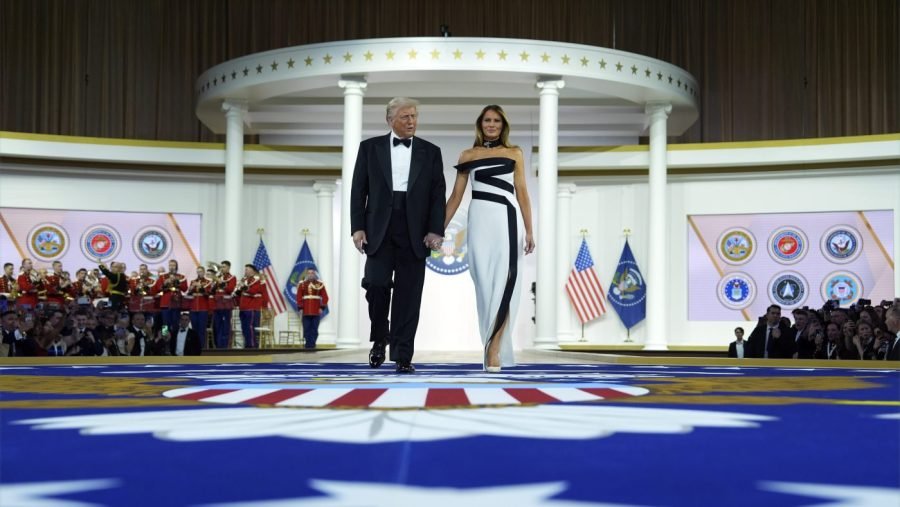After four years covering a White House that prided itself on the clockwork predictability of process and routine, political reporters awoke on Tuesday morning to the familiar feeling of Trumpian chaos.
Thanks to a pile of executive orders that President Trump had signed the night before, undoing many of former President Joe Biden’s policies, it almost felt as if time hadn’t passed at all since Jan. 20, 2021. Trump threw himself into the optics of governing with gusto, signing some of his most controversial orders in front of a cheering crowd at the Capitol One Arena in Washington, D.C. The disorienting spectacle was pure Trump.
A majority of voters tired of Trump’s never-ending circus by the time his first term wound down. Now, freed from the concerns of running again, Trump has repeatedly pledged to use his second term to cement his “MAGA” ideology into every aspect of American politics and culture. The end result will be an America that is unrecognizable to half of the country.
At least this time around, we won’t need to wrestle with a movement that attempts to deny, minimize or sugarcoat the autocratic, big-government nature of its political goals. Gone are the days when Trump sycophants in Congress pretended to not understand the president’s actions. Now the disloyal have either left the party or faced humiliating political purges.
Four years ago, a few House Republicans might have raised some small protest over Trump’s decision to pardon 1,500 January 6 rioters. Among those freed are 600 men and women who attacked police officers and 14 senior members of the Proud Boys and the Oath Keepers, two street gangs who mask their violence in the language of conservative “patriotism.” Several of those men, including Proud Boys leader Enrique Tarrio, were serving lengthy sentences for seditious conspiracy.
“If you beat up a cop, of course you deserve to go to prison. If you violated the law, you should suffer the consequences,” Vice President JD Vance told CNN back in May, before the expediency of becoming Trump’s running mate forced him to surrender his principles. Survey some of the Republican lawmakers walking the halls of Congress, and few will even acknowledge the pardons exist. Instead, they’re still talking about Biden. Sen. Mitch McConnell (R-Ky.) was one of the very few willing to offer even slight criticism of Trump’s decision.
“No one should excuse violence. And particularly violence against police officers,” McConnell told Semafor on Tuesday. That’s a fine sentiment, but Republican leaders know by now they can safely ignore McConnell. At 82 years old, battling ill health and with his political career winding to a close, Trump must see McConnell as hardly worth the effort to berate.
The invisible Republican response to Trump’s anti-cop pardons may be met with obedient silence on Capitol Hill, but voters haven’t yet been cowed into silence. Most Americans dislike pardons in general, a fact we learned following Biden’s disastrous decision to pardon his son Hunter for a handful of federal crimes. Voters like pardons for violent anti-government kooks even less. A new AP-NORC poll finds just 20 percent of Americans support Trump’s sweeping January 6 pardons — an even lower number than after Biden’s pardons.
That might bother a political party that’s still interested in majoritarian politics, but having achieved his victory, Trump no longer needs to appeal to voters. That his fellow Republicans in Congress still have elections to worry about is a secondary concern. The sweeping nature of Trump’s pardons indicates he’s prepared to go all out with the time he has in power, regardless of its long-term consequences for a post-Trump Republican Party.
That’s why, at the height of his political might, both Republicans and Democrats should exercise caution in cutting legislative deals with Trump. The first heaving days of his presidency make clear that Trump is playing largely for himself and the solidification of his personal legacy.
While his MAGA movement has been an undeniable boon for the Republican Party, it’s worth remembering that most of that magic has never translated well beyond Trump himself. Just ask Ron DeSantis.
Trump’s overwhelming self-interest, coupled with the unaccountability of never needing to run for office again, makes him an unreliable president and a short-sighted party leader. As far as Trump is concerned, the Republican Party will be someone else’s mess in 2029.
This second Trump era is going to feel a lot like the first. It will be always-on, frenetic in its pace and exhausting in the volume of news it produces. And by Trump’s own admittedly brilliant design, most of that coverage will be about him.
Max Burns is a veteran Democratic strategist and founder of Third Degree Strategies.


